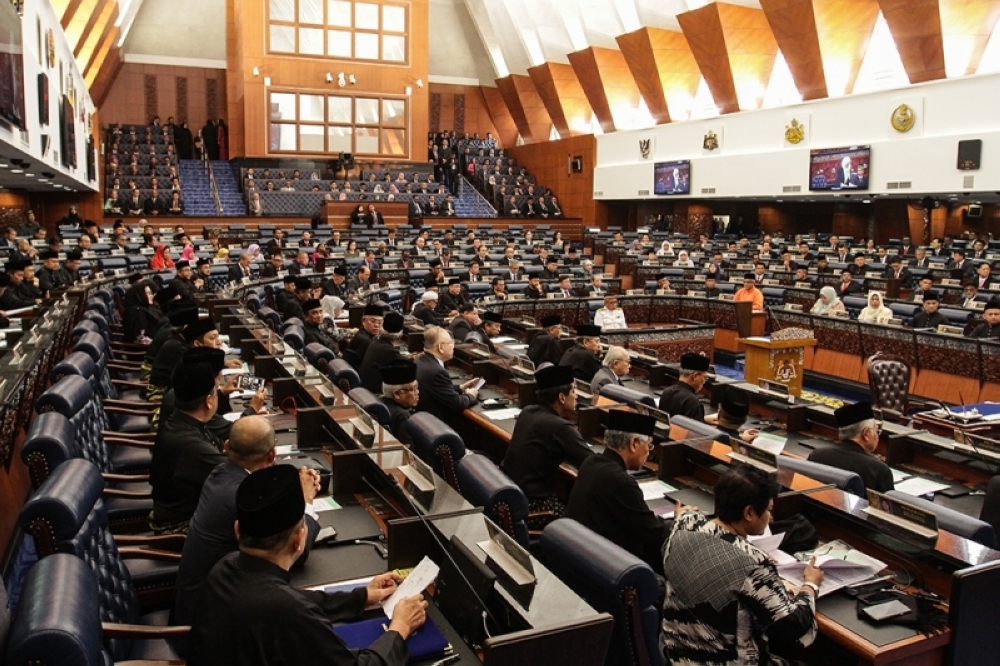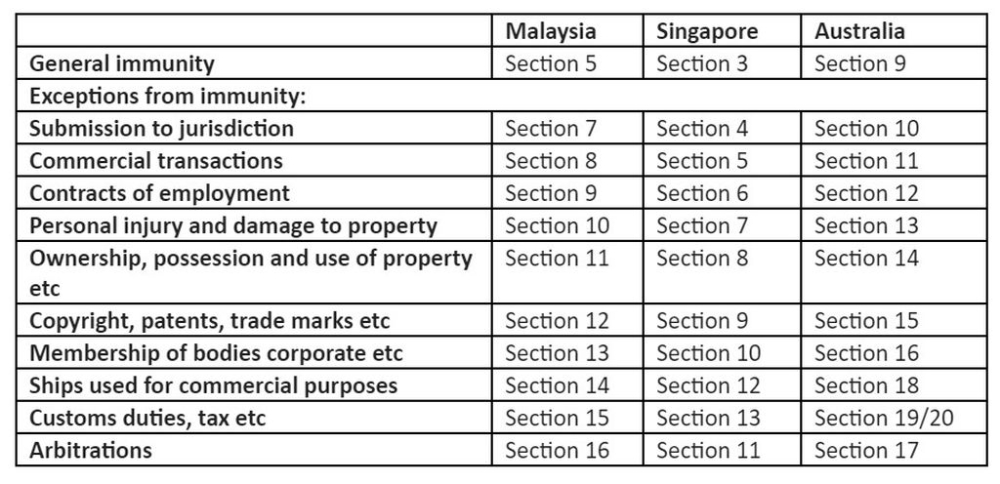MARCH 19 — In “Why the need for a State Immunity Act”, I explain the need for a State Immunity Act.
The legislation is long overdue in Malaysia. Similar legislation has been enacted for 46, 45 and 39 years in the UK, Singapore and Australia respectively.

The table below shows the provisions in the Jurisdictional Immunities of Foreign States Bill 2023, which has been passed by the Dewan Rakyat today, are comparable to the provisions in the Singapore and Australia legislation.

Concerns were reportedly raised over clauses related to the role and power of the prime minister outlined in the Bill.
Takiyuddin Hassan (PN-Kota Bharu) questioned Clauses 32 and 33, saying significant authority is granted to the prime minister instead of the Yang di-Pertuan Agong (YDPA).
“It is somewhat different from the laws of other countries that were established before Malaysia’s,” he said in the Dewan Rakyat.
“In other countries, such power is given to Her Majesty, the Governor-General, the President, or head of state,” he added.
Takiyuddin is right. In the UK, it is now His Majesty, in Australia the Governor-General, and in Singapore the President.
As a lawyer, Takiyuddin must be acutely aware, however, that all three Heads of State – His Majesty, the Governor-General and the President – act on advice of the Cabinet – effectively the prime minister.
That Clauses 32 and 33 grant power to the prime minister can be viewed positively – that is, the exercise of power by the prime minister can be subject to judicial review. It removes doubt as to the judicial amenability of the power.
Recent cases have shown how the exercise of executive power has been challenged and the objection to such challenges has been the non-justiciability of the power as exercised by the YDPA.
There need not be a ruckus in the Dewan Rakyat over the granting of power to the prime minister.
An Opposition today may be the government tomorrow. Oppose not for the sake of opposing.
* This is the personal opinion of the writer and does not necessarily represent the views of Malay Mail.





















